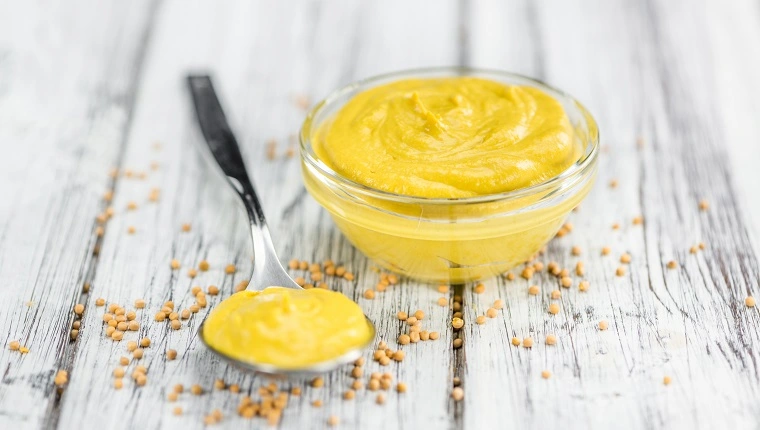Hey there, fellow cat lovers! We’ve all heard that old saying, “curiosity killed the cat,” but what about curiosity about what our feline friends can eat? Well, today, we’re here to explore a spicy topic: Can cats eat mustard? Is mustard safe for cats? Let’s dive into this condiment conundrum and separate fact from fiction.
The Curious Case of Mustard and Cats
We’ve seen our cats nibble on some peculiar things, but mustard might take the cake (pun intended). Before we make any conclusions, let’s break down the mustard components and see if they pass the feline-friendly test.
What’s in Mustard?
Mustard isn’t just a single ingredient; it’s a blend of various components. The primary ones are:
Mustard Seeds
These seeds contain compounds called isothiocyanates, which give mustard its pungent flavor and can be potentially harmful to cats.
Vinegar
Mustard often contains vinegar, which is generally safe for cats in small quantities.
Salt
Excessive salt can lead to salt poisoning in cats, so this is a potential concern.
Spices and Flavorings
Mustard can contain various spices and flavorings, some of which may not sit well with your cat’s tummy.
Is Mustard Safe for Cats?
Now, here’s the critical question: Can cats have mustard, or should it be a strict no-no?
The Risk of Isothiocyanates
Isothiocyanates, found in mustard seeds, can be harmful to cats. These compounds can cause gastrointestinal distress, vomiting, and even lead to more severe issues if ingested in large amounts. As responsible pet owners, we should always prioritize our furballs’ well-being and avoid exposing them to potential risks.
The Salt Factor
Salt, when consumed in excessive amounts, can be detrimental to cats. It can lead to salt poisoning, which may cause symptoms like excessive thirst, urination, and even more severe issues like tremors and seizures. Mustard contains salt, so it’s best to keep it away from your cat’s plate.
The Delicious Alternative
If your kitty is craving something tangy, it’s better to offer a small piece of cooked chicken or turkey instead. These lean meats are safer and more suitable for cats.
What Do the Experts Say?
As responsible pet owners, we should always consult with the experts. Veterinary professionals and government bodies offer valuable guidance when it comes to our pets’ dietary needs.
The Vet’s Take
Veterinarians unanimously advise against feeding mustard to cats. The risks associated with mustard components, such as isothiocyanates and salt, outweigh any potential benefits.
Government Guidelines
Government agencies like the U.S. Food and Drug Administration (FDA) and the American Veterinary Medical Association (AVMA) recommend sticking to a balanced feline diet and avoiding foods that are not explicitly designed for cats.
Conclusion
In the mustard vs. cats showdown, it’s clear that mustard is not a suitable addition to your feline friend’s diet. The potential risks, such as isothiocyanates and excessive salt, far outweigh any potential benefits.
As pet owners, our top priority should always be the health and well-being of our beloved cats. So, while it’s tempting to let them explore the world of human foods, let’s stick to feline-friendly options and consult with a veterinarian for any dietary concerns.
Remember, a happy and healthy cat is a contented companion, and that’s what we all want for our furry family members!
- Best Lusha Alternatives for 2025 - April 19, 2025
- Best Overloop Alternatives for 2025 - April 19, 2025
- Best Snov.io Alternatives for 2025 - April 18, 2025



